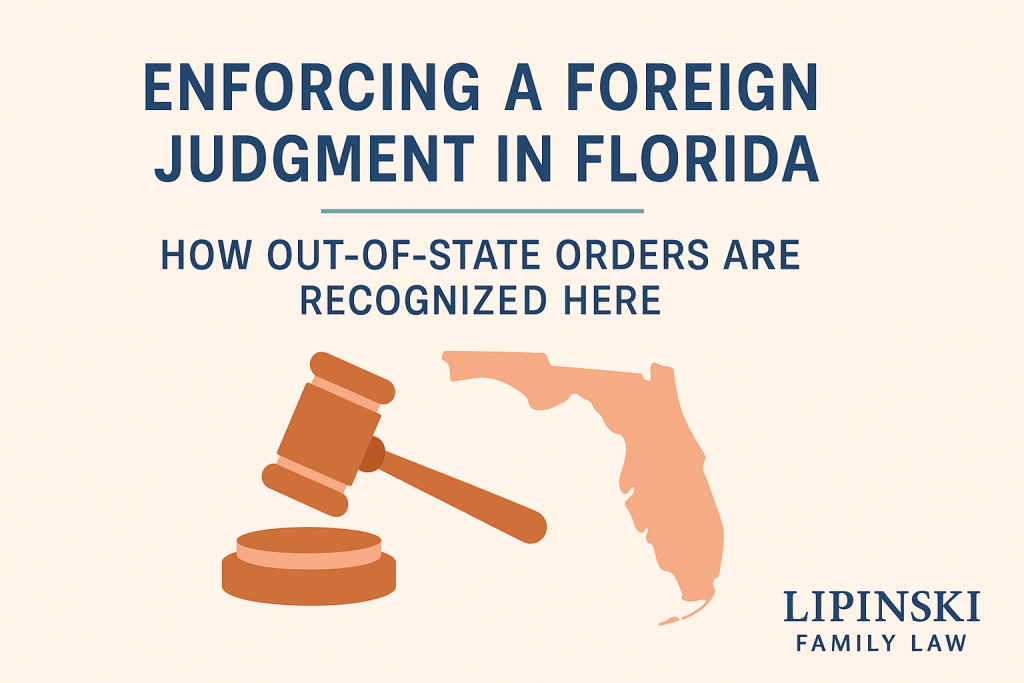
Enforcing a Foreign Judgment in Florida: How Out-of-State Orders Are Recognized Here
If you’ve already won a court order in another state, you might think it automatically applies in Florida. But before you can collect, you must complete a process called enforcing a foreign judgment in Florida—also known as domestication.
1️⃣ What Counts as a Foreign Judgment?
A “foreign judgment” is any court order from another U.S. state or territory.
Under the Full Faith and Credit Clause of the U.S. Constitution, Florida must recognize those judgments—once they’re properly filed.
2️⃣ The Domestication Process
Florida Statutes §§55.501–55.509 outline how to domesticate a judgment:
- File an authenticated copy of the judgment with the Clerk of Court.
- Send certified-mail notice to the other party.
- Wait 30 days for objections before enforcement begins.
Once recorded, the judgment can be enforced just like a Florida judgment—through liens, garnishment, or property seizure.
3️⃣ Common Family-Law Scenarios
You may need to register a foreign judgment for:
- Unpaid child support or alimony.
- Divorce decrees or property settlements issued elsewhere.
- Attorney-fee awards or arrears judgments.
4️⃣ Avoid These Common Mistakes
- Filing uncertified copies.
- Failing to serve notice properly.
- Trying to modify custody through domestication instead of the UCCJEA registration process.
5️⃣ Why Legal Guidance Matters
Domesticating an out-of-state order is procedural but critical. A small mistake can delay or block enforcement. Lipinski Family Law helps clients navigate each step, ensuring your judgment is recognized and enforceable in Florida.
Lipinski Family Law: Personal Attention. Practical Solutions. Powerful Advocacy.
Learn more at joeltheattorneysblog.com.


